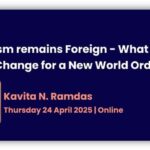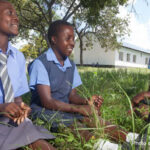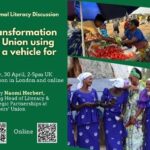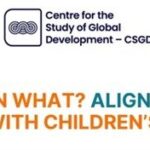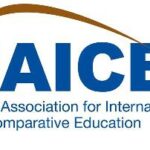Abstract Deadline 31 January 2022
Manuscript Deadline 30 June 2022
Carrying out research in conflict-affected contexts inevitably requires entering and negotiating within local and global fields of power. Legacies of colonialism and ongoing coloniality give shape to research relationships in education in emergencies, including by influencing funding agendas, geographic spaces seen to be sites of knowledge production versus data collection (extraction?) and the positionalities researchers navigate. Given the high value of education for individuals and communities impacted by conflict, and its relatively low priority in global aid and reconstruction efforts, educational researchers must navigate both high expectations and high tensions. Though education can be a site of hope and resilience in the midst and aftermath of violent conflict, all too often grave inequities in schools and education policy hinder young people’s learning, or cause outright harm. These challenges of EiE often motivate calls for more and better evidence on how education can contribute to the former and avoid the latter. This potentially creates another tension, between the urgent production of policy relevant evidence and theoretically informed and critical research.
Taking seriously calls to decolonize education in emergencies (Oddy, 2021) and ‘decenter the white gaze’ (Pailey, 2020) that frames international development agendas and practices, this special issue seeks to provide a space to reflect on these relational tensions as navigated by EiE researchers. These may be felt throughout the research process, from the moment in which a research project is conceptualized and instruments designed, partnerships developed, funding sought or granted (or not), during participant selection and periods of data collection, and as findings are analyzed and shared. However, they are rarely discussed at length in final research outputs.
Topics of interest include, but are not limited to:
- How the “most relevant” contexts for (funding) EiE research are identified
- Presentation of research agendas and identities vis-à-vis different audiences and stakeholders
- Influence of urgent policy agendas and funding criteria on research designs
- Positionality of researchers within schools/communities in contexts of violence and within wider geopolitical relations of knowledge production
- Influence of research questions, methods, and measurement instruments on partnerships, participants, and findings
- Ethics of representation, especially negative findings that may harm partnerships or undermine educational opportunities
- Reciprocity in transnational collaborations across vast power divides and in the midst of tenuous, transient, and/or insecure settings
- Accounting for power and privilege in recognition of global hierarchies and coloniality in which violent conflicts are embedded
- Race and racism in EiE research and practice
- Possibilities of reflective quantitative, qualitative and mixed methods approaches in EiE
- Negotiating entry and exit in schools and communities
- Community-based research initiatives
- Reflection on the distribution of material and symbolic resources through involvement with research/ researchers
- Language and accessibility in undertaking and sharing research findings
We welcome contributions to this special issue and encourage submissions from scholars and practitioners from under-represented groups in academia, development and humanitarian practice; early in their careers; and/or with lived experience of conflict and emergency. We welcome single and multi-authored papers and are open to non-traditional academic formats.
Please send abstracts of no more than 300 words to julia.paulson@bristol.ac.uk by
31st January 2022. We will be in touch in February 2022 with feedback on abstracts and to
invite full papers from approximately 10-12 contributors.
Submission Instructions

